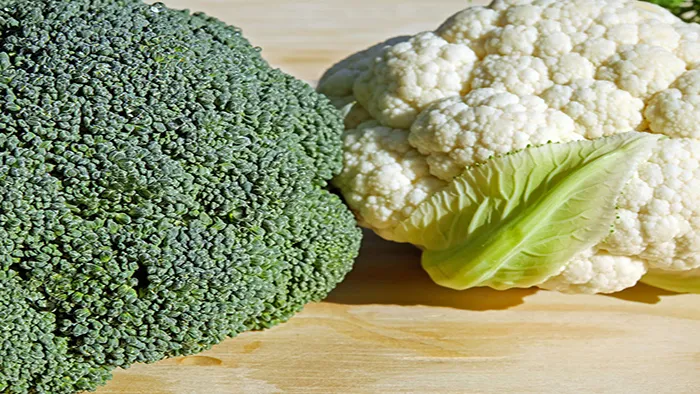Vitamin K plays an important role in the blood clotting process. Blood clotting helps to prevent excessive bleeding both inside and outside the body. The body needs vitamin K to produce proteins necessary for blood clotting.
A deficiency of vitamin K can occur due to poor dietary habits or conditions such as cystic fibrosis, gall bladder problems, or liver diseases. This can lead to a decrease in the production of the proteins necessary for blood clotting.
Common signs of a vitamin K deficiency include excessive bleeding, easy bruising, heavy menstrual bleeding, and symptoms of inflammatory bowel disease such as bloody stools, indigestion, and diarrhea. Vitamin K deficiencies are rare in adults but common in infants. Most adults get enough vitamin K from their diet and their body’s own production.
Your doctor can diagnose a vitamin K deficiency through a combination of symptoms, medical history, and blood tests. Treatment involves supplementing with either natural or synthetic vitamins.
How many types of Vitamin K deficiency problems can there be?
Vitamin K exists in two forms: “vitamin K-1,” which is found in plants like spinach, and “vitamin K-2,” which is produced by the body and can also be converted from vitamin K-1 by intestinal bacteria. Both forms help to produce the proteins necessary for blood clotting. Vitamin K-2 can be obtained through supplements, while vitamin K-1 is obtained through diet.
How Much Vitamin K Should Be Taken?
Vitamin K is a crucial nutrient for maintaining good health. If the body does not receive enough of it, various problems can occur, such as inability to stop bleeding from injuries or wounds due to a lack of blood clot formation.
The required amount of Vitamin K in the body may vary depending on factors such as gender, pregnancy, and other conditions. The table below provides guidance on the recommended dosage based on these factors.
How do I know I have enough Vitamin K?
The following are the symptoms and signs associated with vitamin K deficiency:
- Easy bruising of the skin
- Bleeding from the nose or gums
- Unusually heavy bleeding from wounds, skin punctures, injection sites, and surgical sites
- Heavy periods
- Bleeding from the gastrointestinal tract
- Blood in the urine or stool
In infants, doctors can detect a vitamin K deficiency by observing the following symptoms:
- Bleeding from the umbilical cord area
- Bleeding from the skin, nose, gastrointestinal tract, or any other area
- Sudden bleeding in the brain, which is a dangerous and life-threatening condition
Who is most at risk of vitamin K deficiency?
Newborns are more susceptible to vitamin K deficiency due to the following reasons:
- Insufficient supply of vitamin K in the placenta
- Immature liver, which cannot effectively use vitamin K
- Low levels of vitamin K in breast milk (2.5 mcg/L compared to 500 mcg/L in cow’s milk)
- Absence of bacteria in the liver during the first few days after birth, leading to a lack of vitamin K absorption from food.
Adults are at an increased risk of vitamin K deficiency and related symptoms if they:
- Take anticoagulant drugs, which block blood clotting and prevent the activation of vitamin K
- Take antibiotics, as some types can interfere with vitamin K production and absorption
- Do not consume enough vitamin K from their diet
- Take excessive doses of vitamin A or E
- Experience fat malabsorption, which affects their ability to absorb vitamin K
People with fat malabsorption conditions, such as celiac disease, cystic fibrosis, bowel or biliary tract disorders, or bowel resection, are also at risk of vitamin K deficiency.
Foods high in vitamin K include green leafy vegetables, prunes, and fermented dairy products.
Certain drugs can also interfere with the effects of vitamin K, including antacids, blood thinners, antibiotics, aspirin, and medicines used for cancer, seizures, and high cholesterol.
How can vitamin k deficiency be prevented?
Nutritionists believe that a daily intake of 120mg of vitamin K for men and 90mg for women is generally sufficient. Foods that are high in vitamin K, such as green leafy vegetables, can provide enough of the vitamin with even a small amount consumed.
Newborns can be prevented from developing a deficiency by receiving an injection of vitamin K at birth. People with fat malabsorption or those taking anticoagulant drugs like warfarin should consult with a doctor about taking vitamin K supplements and having their vitamin K levels tested.
Which foods are high in vitamin K?

- Mustard greens
- Collard greens
- Broccoli
- Brussels sprouts
- Cabbage
- Dried plums
- Avocado
- Tomato
- Grapes
- Green beans
- Green peas
- Nuts, such as walnuts
How is Vitamin K Deficiency Tested?
Diagnosis of a vitamin K deficiency can be made through a combination of a patient’s medical history and physical examination, as well as tests that check for signs and symptoms of bleeding and blood clotting.
One of the main tests used is the Prothrombin Time (PT), which measures the time it takes for bleeding to stop. Other tests, such as Partial Thromboplastin Time (PTT), Thrombin Time, Platelet count, Platelet Function Test, Coagulation Factor Test, Fibrinogen, Von Willebrand Factor, and D-dimer, may also be conducted to check for excessive bleeding, blue skin, and other conditions.
How can it be treated if there is a deficiency of Vitamin K?
Short-term treatments for vitamin K deficiency include dietary supplements and injections. People who have underlying major and chronic health problems are advised to take these supplements for an extended period or for their lifetime.
Although vitamin K can be obtained in ample amounts from food sources, it can also be taken as a supplement. Its pills are readily available in the market. These tablets are usually combined with other nutrients such as calcium, magnesium, and vitamin D. Vitamin K is also present in many multivitamin preparations.
A PT (prothrombin time) blood test measures how long it takes for bleeding to stop after a blood sample is drawn and how much blood flows before it stops. Vitamin K is typically administered in the form of injections. If bleeding stops and the proteins in the blood plasma coagulate, then a deficiency of vitamin K is believed to be the cause of the bleeding. However, it takes at least 2 to 5 days to see the effect of the treatment.
What diseases can be caused by a deficiency of Vitamin K?
Cancer: High intake of vitamin K has been associated with an increased risk of developing cancer.
Osteoporosis: High levels of vitamin K increase the presence of bone-associated minerals in bone tissue, while low levels of vitamin K can lead to osteoporosis, a bone disorder characterized by weakened bones that can result in serious problems such as fractures or falls.
Cardiovascular problems: Vitamin K2 helps prevent hardening of the arteries, which can lead to issues such as coronary artery disease and heart failure. Vitamin K2 can also remove calcium deposits (cavitation) from the lining of the arteries.
Excessive bleeding: Vitamin K, also known as the “clotting vitamin,” helps reduce bleeding in the liver. A deficiency in vitamin K can cause the following problems: bleeding from the nose, blood in stool or urine, and black stool.
Excessive Menstrual Bleeding: The main function of vitamin K is to aid in blood clotting. If a woman has a low level of vitamin K in her body, she may experience heavy bleeding during menstruation. Therefore, it is important to consume foods that are rich in vitamin K for a healthy life.
Haemorrhaging: Vitamin K deficiency in infants can lead to a hemorrhagic condition, also known as hemorrhagic disease. Infants are usually born with a deficiency of vitamin K because they have no bacteria in their intestines and they do not receive enough of it from breast milk.
Skin Easily Turning Blue: A deficiency of vitamin K can cause problems such as bruising or swelling, which can later lead to continuous bleeding. Adequate amounts of vitamin K can reduce conditions such as bluish discoloration of the skin or swelling.
Aging: Vitamin K deficiency can also cause wrinkles on the cheeks, making it important to consume enough vitamin K to maintain youthfulness.
Hematoma: Vitamin K is an essential nutrient for the blood coagulation mechanism. It prevents bleeding and reverses the blood-thinning process.
Birth Defects: A deficiency in vitamin K can lead to birth defects in children, such as short fingers, underdeveloped nose, misaligned ears, mouth and brain-related malformations, etc.
Poor Bone Health: Vitamin K is necessary for the proper utilization of calcium in bones, helping them maintain their strength and integrity. A high intake of vitamin K can significantly increase bone density (the amount of minerals in bone tissue).

